Is AI the Way to Write?
Full disclosure: Artificial intelligence software was used to transcribe this interview with Jennifer Jean, senior program manager at the Fine Arts Works Center, who is organizing a panel discussion about the dangers of AI.
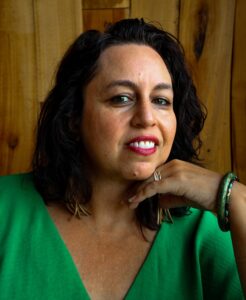
But the use of AI to transcribe notes is not Jean’s primary concern. It’s “AI creep,” as she puts it, that has novelists, screenwriters, poets, and translators like herself on edge as they consider how their creative output and livelihoods could be affected as AI use spreads. The issue was central to the Hollywood screenwriters strike earlier this year, prompting Jean to organize FAWC’s upcoming virtual panel discussion, “AI and the Creative Writing Life,” on Thursday, Nov. 14 at 6 p.m.
“The screenwriters were concerned about how AI will affect their jobs and their payouts,” says Jean, who is originally from Los Angeles and follows the film industry closely. “I’m a translator, and there’s a lot of talk about how AI affects our community. Do we need translators if we have AI? I’d say yes, because you bring an artistry to your translation, working your own individual voice. AI would impede that process.”
Seeing the screenwriters’ concerns as a “canary in a coal mine,” Jean decided it was time to see how writers from other disciplines might weigh in on use of artificial intelligence in their work. She’ll be joined by Oliver de la Paz, author, editor, and poet laureate of Worcester, whose latest work was long-listed for the National Book Award. Poet and podcaster Katie Dozier and Keith Holyoak, a poet and distinguished professor of psychology at the University of California, Los Angeles, will round out the panel.
Among the issues that will be discussed are questions of transparency, access, and classism. If demand for written content diminishes, Jean and others believe it will raise questions about which audiences will be more likely to consume cheaper, AI-generated content and which will have access to more costly human-created content.
“If you shrink to fewer humans and lots of AI, content created by humans will be like a delicacy or luxury,” she observes. “It could also become a question of access.”
Jean hopes that the discussion will attract not only writers but consumers of the written word as well. “This will affect readers as well as writers,” she says.
The event is free, but advance registration is required to receive a link to the discussion. To register, see fawc.org. —Katy Abel
A Musical That Finds Love and Community
Jennifer Kangas has long treasured the musical Oliver! for its score, rousing dance numbers, and messages of love and community. But as a kid, she says, a favorite part of the 1968 movie was the red dress worn by the character Nancy.
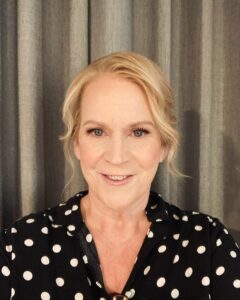
Kangas would sing and dance in her bedroom to the songs in the musical while wearing a red velvet dress found in a thrift store, using stuffed animals as her co-stars. It was the start of a decades-long career as a singer, actress, and designer in musical community theater. Now, the depth of young talent she says she’s seen in recent shows at the Academy of Performing Arts in Orleans has inspired Kangas to take on her largest-ever directing job: a production of Oliver! with more than 50 cast and crew members that premieres on Thursday, Nov. 7.
The show is based on Charles Dickens’s 1838 novel of orphan Oliver Twist falling in with a gang of young pickpockets. As an adult, Kangas has appreciated its universal themes, including Nancy’s goodness in choosing love and loyalty despite fear of domestic abuse.
Another theme is the search for community. Kangas says she’s grateful for having parents who were supportive of her talent and love of music even while her military family’s frequent moves created social challenges in multiple schools. Because of that, she says, she identified with Oliver’s questioning “Where do I belong? Where do I fit in?”
Then there’s economic inequality. “The perception of Cape Cod in the outside world is that everybody’s a ‘have,’ and I know a lot of people who are ‘have nots,’ ” notes Kangas. She hopes Oliver! viewers will consider how people here can care for each other.
Kangas says she’s found a strong community through working with multiple local theaters as well as with Cape Cod Opera and Chatham Chorale. “I’m a musician who’s been forced to act so I can sing,” she jokes. She’s grateful, too, for her collaborators on Oliver!, including choreographers Missy Potash and Sydney Peterson and set designer Mark Roderick, who created a Victorian theme for the Academy’s recent haunted house in the weeks leading up to Halloween so the stage could morph quickly into backdrops for Oliver!
Oliver! runs at the Academy Playhouse (120 Main St.) through Nov. 24. Tickets are $25 to $40 at academyplayhouse.org. —Kathi Scrizzi Driscoll
Looking at Land, Place, and Identity
The contributions of Asian American artists to the Outer Cape’s art history are not often discussed. On Sunday, Nov. 10, art historian Asia Adomanis will provide an opportunity to learn more about that history in a lecture about Seong Moy, a Chinese-born painter and printmaker who ran an art school in Provincetown in the 1950s and 1960s.
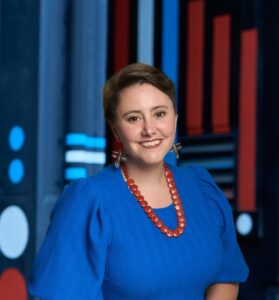
Adomanis is one of six presenters at “Land, Place, Identity,” a two-day symposium at the Provincetown Art Association and Museum. Like Adomanis, the other participants — a mix of art historians, artists, and curators — will explore topics “with a particular emphasis on art forms and scholarship that expand beyond western art-historical frameworks,” according to a description of the event on the PAAM website.
The symposium will begin on Saturday, Nov. 9 with presentations that feature Indigenous voices. Elizabeth James-Perry, a Wampanoag artist who works with wampum, naturally dyed textiles, and watercolors, will be followed by Ryan Rice, executive director and curator of Indigenous art at the Ontario College of Art and Design’s Onsite Gallery, who will discuss “vital tools to amplify and advance Indigenous sovereignty.” Tess Lukey, associate curator of Native American art at the Trustees of Reservations, a nonprofit land conservation and historic preservation organization, will deliver the keynote address.
On Sunday, crystal am nelson, assistant professor of African/diasporic visual studies at the University of Colorado, Boulder, will discuss American contemporary artist Kerry James Marshall’s work in the larger context of Black landscape painting. Artist LaRissa Rogers, a 2023-2024 FAWC fellow, will speak about her research on land ownership, slavery, and displacement as part of a public sculpture she is developing for the Rose Kennedy Greenway in Boston. Rogers, nelson, and Adomanis will end the symposium in a moderated discussion with artist James Everett Stanley.
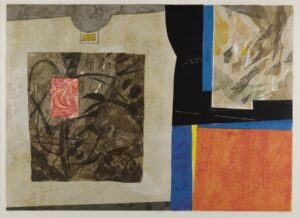
Although this exploration of landscape tradition extends beyond the borders of the Outer Cape, Adomanis is looking forward to visiting Provincetown for the first time in order to learn more about the influence of the area on Moy’s artwork. Her lecture will focus on Moy’s landscapes from the 1960s through the 1980s, including Long Nook Beach, a silkscreen print. It reads as an abstraction, but Adomanis will visit the Truro beach to see if she can find any of its visual roots. “It has such a specific name,” Adomanis says of the print. “It will be interesting to compare it to the actual place.”
Tickets for each day of the symposium are $10 (free for PAAM members.) Visit paam.org for more information. —Abraham Storer
Premiering a New Musical Comedy at Cape Rep
When Seton Brown first learned about the theatrical tradition of commedia dell’arte in high school, he says, he felt like he’d discovered how his brain saw and translated the world. “It was like suddenly waking up and realizing you weren’t speaking your native language until that moment,” he says.
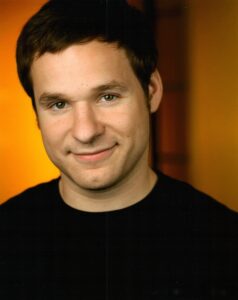
The ensemble style emphasizing wordplay and broad humor was popularized in Renaissance Italy, most often with stock characters including young lovers, the elders trying to thwart them, and helpful servants. While he had previously written and performed improvisational commedia scenarios, he realized actors preferred a guiding script. After writing sporadically for years while acting professionally, Brown created Pickle Me Tink: A Lovesick Musical Comedy, which premiered on Nov. 6 at Cape Rep Theatre in Brewster.
The commedia elements in Brown’s production remain familiar: publicity material from Cape Rep compares the humor in Pickle Me Tink to Lucille Ball and the Marx Brothers. Brown also cites Abbott and Costello’s ping-ponging dialogue as an inspiration. The story involves a maiden with a young lover whose efforts to thwart her forced engagement to an old man include disguising herself, causing misunderstandings that spiral out of control.
Brown credits producing artistic director Janine Perry and associate artistic director Maura Hanlon for supporting new plays, in addition to providing the idea to make the show musical and even for the wordplay in its title, Pickle Me Tink. Perry and Hanlon also introduced him to music director Malcolm Granger, who has adapted American standards in modern arrangements to fit the story. Actress Chelsey Jo Brown (Seton’s wife) designed the choreography, which Brown says is vital to making the overall vaudeville theme work.

Pickle runs through Dec. 8 at Cape Rep (3299 Main St., Brewster). Tickets are $25 and $45 at caperep.org —Kathi Scrizzi Driscoll
A New Season of Art Films
For nearly two decades, the Provincetown Film Art Series has been a central feature of the Outer Cape’s off-season cultural calendar. Curated and hosted by film scholar and Independent movie critic Howard Karren, each season’s films are chosen with a common theme and are ones that Karren considers to be works of art in themselves. This year’s program, which focuses on “society, survival, and being oneself,” includes 14 films, both contemporary and vintage, by directors from around the world.
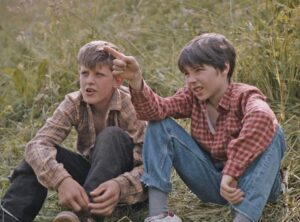
The 18th season of the series begins on Sunday, Nov. 10 at Waters Edge Cinema with a screening of Belgian writers and directors Felix van Groeningen and Charlotte Vandermeersch’s 2022 film The Eight Mountains. Described as a “wise, bittersweet, and sweeping saga” about a decades-long friendship between two men who meet as boys in an alpine village in northern Italy, the film won a Jury Prize at the 75th Cannes Film Festival in 2022. A pre-screening opening celebration on Nov. 10 will include refreshments.
The remaining screenings of the 2024-2025 series will take place at Waters Edge Cinema on Thursday nights beginning on Nov. 21. Films will be screened every two weeks (with one break in early January) through May 14.
Season passes, which include admission to the opening and closing celebrations and all 13 Thursday night screenings, are $165 for PFS or PAAM members and $195 for nonmembers. Tickets for individual screenings, as well as for the opening and closing celebrations, are also available. See ptownfilm.org and paam.org for ticket information and a complete schedule of films. —John D’Addario
A Global Musical Conversation
Although the band Sawaari is based in Boston, its members come from all over the world. Vocalist and percussionist Fabio Pirozzolo is from Italy; Amit Kavthekar, who plays tabla (a pair of hand drums), is from India; and Mike Rivard, on double bass and sintir, and Andy Bergman, on winds, are both from the United States. The group used to be a quintet, says Pirozzolo, but their oud player Jussi Reijonen, from Finland, left the U.S. a couple of years ago. For now, Sawaari is a quartet. They’ve been playing together since 2017.
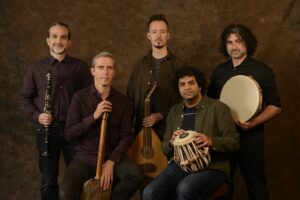
The band will perform at Wellfleet Preservation Hall on Sunday, Nov. 10, at 7 p.m. “We expect people to dance,” says Pirozzolo. “However your spirit moves, you should go along with it.” During certain more meditative numbers, he notes, listeners might prefer to stay seated. But when the audience dances, “we play better,” he says. “Groove and movement are fundamental.”
Sawaari has diverse instrumentation that can sometimes result in melodic limitations. The sintir — a three-stringed, fretless instrument from Morocco — has a limited range, says Pirozzolo. Winds also have a certain range. Yet Sawaari’s sound is anything but limited: each instrument participates fully in a brilliant, intricate musical conversation.
One thing all of the band members have in common is improvising — a foundation of Indian, Middle Eastern, and jazz musical traditions. “Ultimately, we just jam and see if something works or doesn’t work,” says Pirozzolo. “We like to put all our influences in the blender and see what comes out. At the end of the day, our music doesn’t sound like Indian or southern Italian or Moroccan — it sounds like us.”
Tickets are $25 at wellfleetpreservationhall.org. —Eve Samaha



